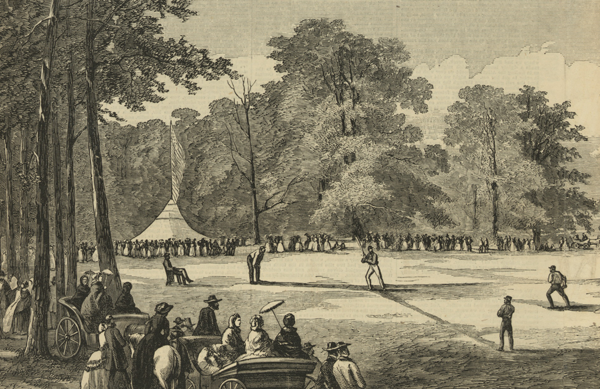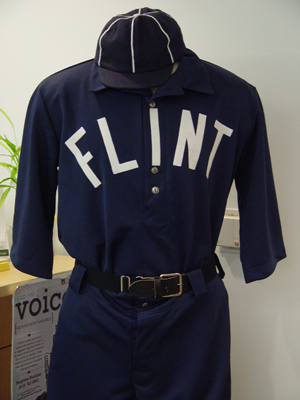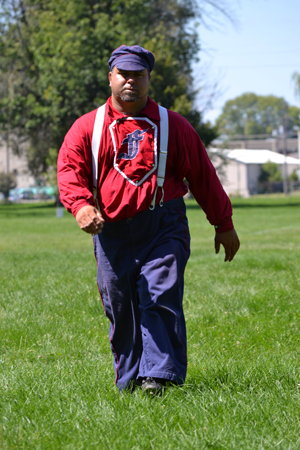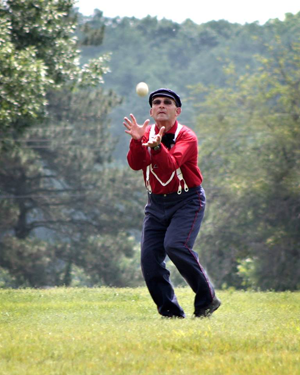UM-Flint's Vintage Base Ball Club Wants You to "Play Ball!"

Do you love the game of baseball? Here's your invitation to a summer of fun. The University of Michigan-Flint's vintage base ball club is returning for a second season and looking for players to join the team. Each year over 25 teams take to ballfields all over Michigan dressed in period uniforms, using replica equipment, and playing by rules of the 1860s to recreate the earliest days of America's past time. For the second year in a row, UM-Flint's Department of History and Whaley Historic House Museum are sponsoring the "Lumber City" team.


Practices have already begun and the team is looking to add players to the roster.
"If you enjoy playing baseball and have an interest in the game's history, then you would love playing vintage base ball," said Wyatt Professor of U.S. History Thomas Henthorn.
Henthorn started the club as a way to engage the community and explore history in a way that is fun for everyone involved.
"We have a good mix of players—some of us are associated with the university and some are just members of the community who liked the idea of combining sport with history," remarked Henthorn.

Home games are played on Saturday afternoons near the William S. White Building on UM-Flint's campus. Lumber City Vintage Base Ball Club plays teams from all over Michigan and travels to a number of historic sites such as Fort Wayne in Detroit.
Practices are always open to anyone who is interested in joining the team. For information on joining the team and practice times contact Professor Thomas Henthorn in the Department of History: henthorn@umflint.edu.
Related Posts
No related photos.
UM-Flint News
The Office of Marketing & Communications can be reached at mac-flint@umich.edu.